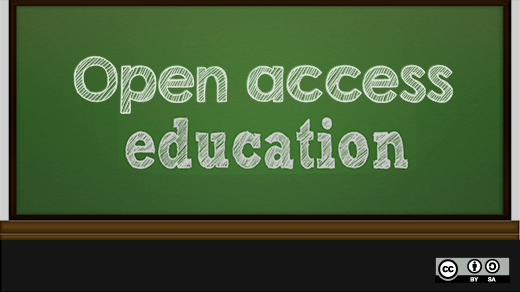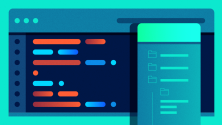The rising cost of traditional textbooks, along with an increased demand for high-quality, low-cost alternatives, has fueled the growth of open educational resources in higher education. One of the leaders in this burgeoning sector of academia is Saylor Academy. Here's what Saylor's director of education, Devon Ritter, told me recently how the organization is using open educational resources to level the playing field in higher education. His comments have been edited for brevity and clarity. —Don Watkins
Saylor Academy is built on an idea our founder, Michael Saylor, chairman and CEO of MicroStrategy, had in the early 2000s that access to education and recognized credentials should be more affordable and equitable. In 2008, Saylor Academy (then called the Saylor Foundation) began its work to provide open educational opportunities.
Our predominant focus today is to curate the wealth of information that is freely available on the web into high quality, learning-outcome aligned, college-level and professional development courses, which anyone who has access to the internet and a grasp of the English language can access anytime, for free.
As Michael said at Saylor's recent education summit, to meet the world's growing need for learning, "the cost per education unit delivered has to go way down, the capacity's got to go way up. To do that, you need a machine to manufacture education. The world doesn't need 100,000 algebra teachers; [we need] one really, really good algebra teacher [whose teaching can be] automated and manifested in software that delivers an algebra education to the next 10 billion people."
We offer nearly 100 free courses, and 100% of the courses we develop are openly licensed under a CC BY license. We also deliver our courses using the Moodle open source learning platform and have made our own updates and customizations to Moodle openly available.
Making college affordable
The early years of Saylor were not about providing college credit opportunities or the possibility of a degree, but simply to open access to high-quality learning opportunities that interested learners were previously closed out from, for reasons of money, geography, etc.
Today, however, we do offer 31 courses that enable students to earn up to 91 hours of transferrable college credit, which could be used towards a degree at any of our various partner colleges.
- Nineteen of the courses are introductory courses across a broad spectrum of disciplines, including economics, political science, philosophy, and STEM subjects, commonly required to fulfill the non-major portions of the first two years of a liberal arts degree.
- Seven of the courses are business administration courses that could fulfill major requirements for an Associate's or Bachelor's degree in business administration, such as the Open Associate of Science in Business Administration (ASBA) degree offered through our partnership with Thomas Edison State University (TESU).
- The other five courses create low-cost credit options toward a Bachelor's degree with a specific focus in management information systems (MIS). We've aligned credit to these courses based on the JetBlue Scholars program JetBlue airlines offers its employees.
There is no course tuition or textbook cost for taking any of Saylor's courses. The only cost for earning those hours of credit would be to pass our proctored exam, which includes a fee of US$ 25 paid to a third-party proctoring service.
The creation of these low-cost credit transfer opportunities has led to the development of some unique offerings. For example, 19 of the 20 degree requirements for TESU's Open ASBA degree can be met by taking Saylor's free courses and completing either one of Saylor's credit recommended exams, one of Thomas Edison's TECEP exams, or a portfolio assessment. The costs change slightly year-to-year, as associated fees on the TESU side change, but if a student came into the program right now having absolutely no college credit, they could complete the degree for a total cost of $4,238 if they are a New Jersey resident, or $4,547 if not. That cost is likely to drop by about another $1,000, as an additional prior learning assessment option and a free and open version of the only course in the program that currently doesn't have a Saylor Academy equivalent (public speaking) become available.
Designing courses
Saylor's courses are developed by professors we hire as independent consultants. All consulting professors must have subject matter and teaching experience for the course they are engaged to develop. They create suitable learning outcomes for the course they are developing; write assessment items; create course blueprints; vet open education resources (OERs) to be used as course learning materials; provide framing text to support OERs; and conduct peer reviews on other Saylor courses. We are almost always recruiting consulting professors and others to work with us, either in a course development or peer-review capacity.
Behind the scenes, our in-house education project managers serve as course development managers and instructional designers, setting the scope for individual course projects and ensuring that all course elements are meeting the needs of our students and matching the capabilities of our online learning environment. In addition, our education project specialists source potential OER content for faculty to review during course development, then upload courses into our learning platform after they're developed.
Building education on openness
I think the idea of a higher education provider will shift dramatically in the coming years. There is tremendous value in the existing infrastructure and systems that make up higher education, however, they aren't being utilized in the most efficient ways. As student demographics and access needs continue to change, colleges and universities need to change the way they conceptualize what their value and purpose is, and as a result, how they serve students using the resources and infrastructures that they already have.
I don't particularly believe that technology can solve everything, or that all existing models and philosophies of education at traditional institutions are obsolete. I think there is both space and need for both traditional and nontraditional providers to improve the overall delivery of education to make it available to many more people at a greatly reduced cost.
On a more specific note, I think the education community needs to increase its support of openness. That includes a more universal adoption of using and creating openly licensed content and open source technologies. There are a lot of like-minded individuals working towards the same goals in education, but reaching those goals will be almost impossible without also having much broader willingness to let others use, share, and build off your intellectual property.
My hope is that this vision is realized sooner rather than later. It's becoming more and more clear that closed practices are never going to provide the support that a worldwide population requires to become educated at the levels needed in a global society.







Comments are closed.